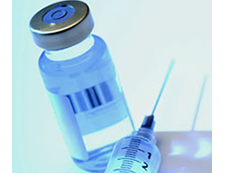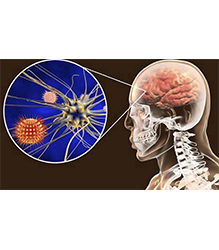Biomed Industries, Inc.™ is a bio-pharmaceutical company committed to the development and commercialization of new drug therapeutics for unmet needs.
Biomed Industries, Inc. is the holding company of Biomed Pharmaceuticals, Inc, NeuroActiva, Inc. and BiomedAI, LLC.
Biomed’s team has discovered a new family of drugs for the treatment and prevention of Alzheimer’s disease.
Today there are more than 6 million people in the US and 50 million people around the world have suffered from Alzheimer’s disease.


The hippocampus is essential for learning and memory formation and one of the first brain regions affected in the development of Alzheimer’s disease (AD). In the hippocampus, new neurons are generated throughout life via a process called adult hippocampal neurogenesis (AHN).
In mild cognitive impairment (MCI) and mild to moderate AD (early AD), AHN is reduced suggesting that AHN impairment compromises hippocampal function. Accordingly, augmenting AHN could help prevent or slow cognitive decline in MCI and early AD.
NA-831 restores neurogenesis by activating synaptic AMPA receptors, and increases the expression of BDNF (brain derived neurotrophic factor). BDNF is crucial in synaptic plasticity, learning and memory formation in the hippocampus.

Traneuroci™ or NA-831 provides neuroprotection and catalyzing the regeneration of new neurons. Oral 30 mg per day for patients with early onset of Alzheimer’s Disease. NA-831 is manufactured by NeuroActiva, a subsidiary of Biomed.
Learn more
In Alzheimer’s patients, the ability to regenerate new neurons in the hippocampus is impaired, causing memory loss and cognitive disorders. NA-831 facilitates neurogenesis restoring memory loss and improve cognitive functions.
Learn more
Biomed is conducting Phase 3 clinical trials of NA-831 for the treatment and prevention of Alzheimer’s disease. We also conduct Phase 2/3 trials of NA-831 in combination with Atazanavir, Remdesivir, and Dexaneurosone and Ivermectin for treating Covid-19
Learn more
Vineurocin (NA-704) is an injectable drug, to regenerate new neurons, and reducting of muscular spasticity, a strong candidate for treatment of Alzheimer’s disease and Parkinson’s disease. NA-704 can be administered with the MICROS. NA-704 is in the Phase 1 safety studies.
Learn more

Combination therapy of NA-831 and an antiviral drugs such as Atazanavir, Remdesivir (Gilead Sciences) and anti-inflammatory such as Dexaneurosone and Ivermectin can enhance the effectiveness of the treatment of Covid-19.
Learn more
